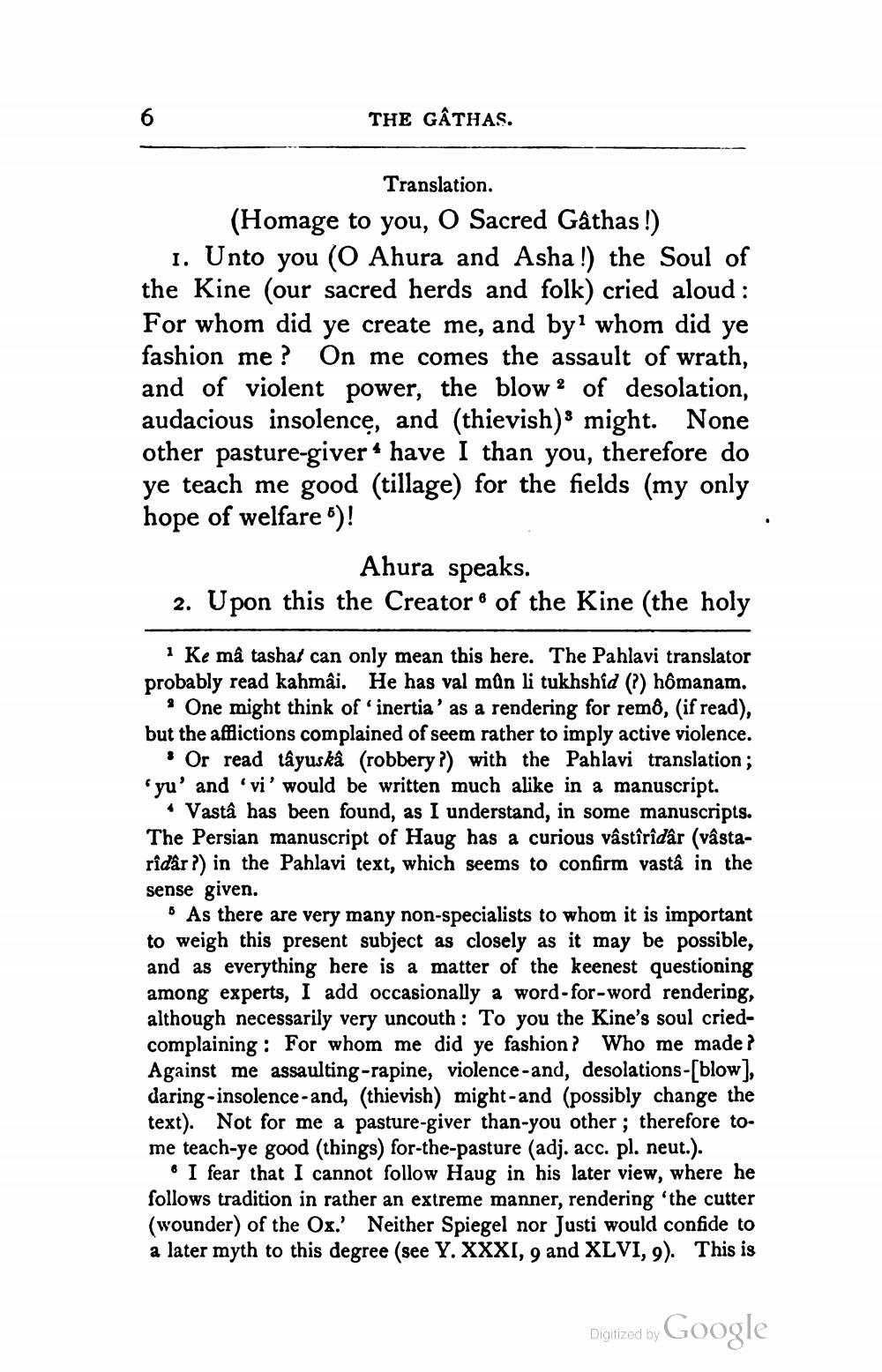________________
THE GÂTHAS.
Translation. (Homage to you, O Sacred Gâthas !) 1. Unto you (O Ahura and Asha !) the Soul of the Kine (our sacred herds and folk) cried aloud : For whom did ye create me, and by? whom did ye fashion me? On me comes the assault of wrath, and of violent power, the blow ? of desolation, audacious insolence, and (thievish): might. None other pasture-giver have I than you, therefore do ye teach me good (tillage) for the fields (my only hope of welfare 5)!
Ahura speaks. 2. Upon this the Creator of the Kine (the holy
i Ke må tashat can only mean this here. The Pahlavi translator probably read kahmâi. He has val mûn li tukhshid (?) hômanam,
* One might think of 'inertia' as a rendering for remo, (if read), but the afflictions complained of seem rather to imply active violence.
• Or read tâyuska (robbery ?) with the Pahlavi translation; yu' and 'vi' would be written much alike in a manuscript.
• Vasta has been found, as I understand, in some manuscripts. The Persian manuscript of Haug has a curious vastîrîdâr (vâstarîdar ?) in the Pahlavi text, which seems to confirm vastå in the sense given.
As there are very many non-specialists to whom it is important to weigh this present subject as closely as it may be possible, and as everything here is a matter of the keenest questioning among experts, I add occasionally a word-for-word rendering, although necessarily very uncouth : To you the Kine's soul criedcomplaining : For whom me did ye fashion? Who me mader Against me assaulting-rapine, violence-and, desolations-[blow], daring-insolence-and, (thievish) might-and (possibly change the text). Not for me a pasture-giver than-you other ; therefore tome teach-ye good (things) for-the-pasture (adj. acc. pl. neut.).
• I fear that I cannot follow Haug in his later view, where he follows tradition in rather an extreme manner, rendering 'the cutter (wounder of the Ox. Neither Spiegel nor Justi would confide to a later myth to this degree (see Y. XXXI, 9 and XLVI, 9). This is
Digitized by
Digitized by Google




